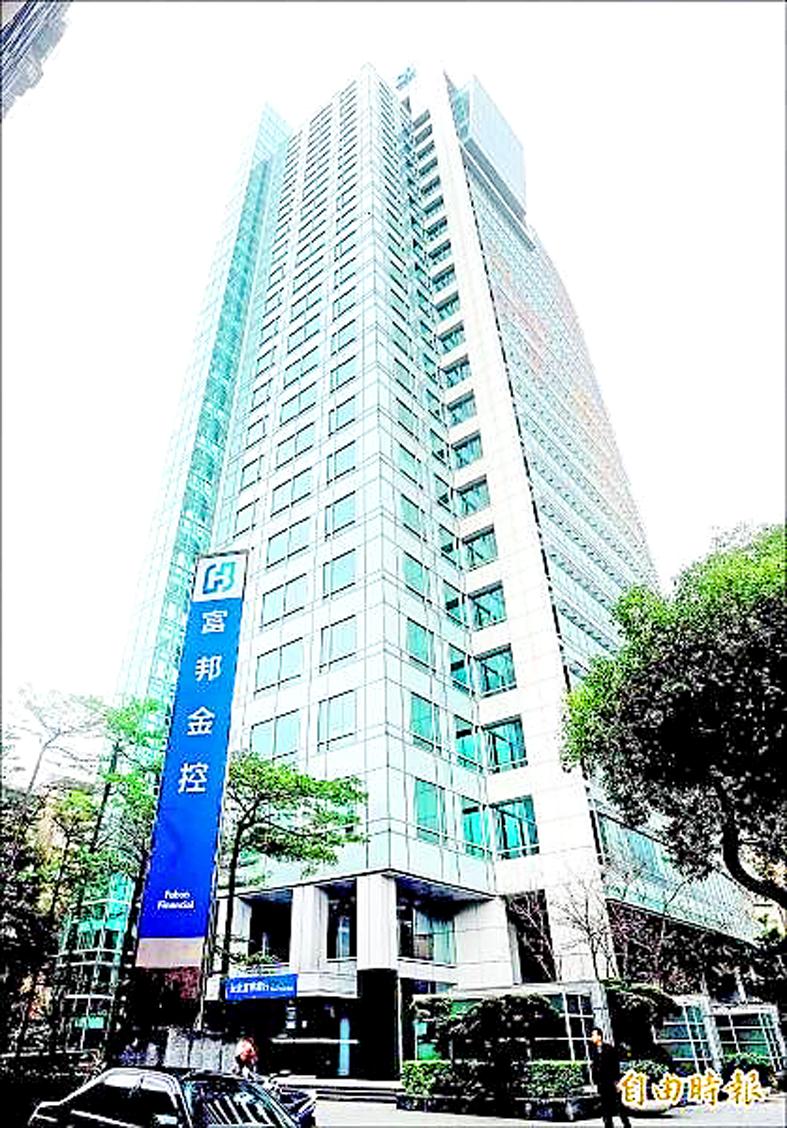Fubon Financial Holding Co (富邦金控), which last week acquired 53.84 percent of Jih Sun Financial Holding Co (日盛金控), yesterday said it plans to buy the remaining 46.16 percent stake in the third quarter and complete the merger by the end of this year.
It would again offer NT$13 per Jih Sun share, the same as its previous public tender offer, to be fair to all Jih Sun shareholders, Fubon Financial president Jerry Harn (韓蔚廷) told an investors’ conference in Taipei.
Having acquired majority control of Jih Sun Financial, Fubon Financial on Tuesday started to recognize its peer’s profits, but operations integration would take more time, Harn said.

Photo: Lin Cheng-kun, Taipei Times
Fubon Financial would start by merging Jih Sun Financial with its operations by the end of this year, then integrate its banking, securities and futures units into Fubon’s arms by the end of next year, he said.
Jih Sun Financial would cease to exist at the end of this year, but Jih Sun International Bank (日盛銀行), Jih Sun Securities Co (日盛證券) and Jih Sun Futures Co (日盛期貨) would continue operating until they become part of Taipei Fubon Commercial Bank (台北富邦銀行), Fubon Securities Co (富邦證券) and Fubon Futures Co (富邦期貨) respectively next year, he said.
“The consolidation of the banking units and securities arms involves dealing with different information systems and employees from both sides. We need to be more cautious,” Harn said.
Although some of Jih Sun Bank’s and Taipei Fubon Bank’s branches overlap in some areas, they would not necessarily be closed, Harn said.
“We would take this opportunity to expand our presence in the countryside and southern Taiwan,” he said.
Even though some branches would be closed eventually, it does not mean that Jih Sun employees would be dismissed, Harn said, adding that Fubon Financial would protect workers’ rights.
“Fubon Financial has conducted many small and big mergers and acquisitions over the past 20 years, and we have never had major labor disputes. Many of our top managers were from the target companies we acquired,” Harn said.
The acquisition is expected to improve Fubon Financial’s efficiency and cost management, as well as boost its revenue, he said.
The deal would raise Fubon Securities’ market share from 5.57 percent at the end of last year to 9.14 percent after absorbing Jih Sun Securities, which would make it the second-largest securities firm after Yuanta Securities Co (元大證券), it said.
Fubon Futures’ market share would also rise from 2.6 percent to 5.23 percent, with its ranking moving from ninth to fifth, while Taipei Fubon Bank’s number of branches would expand to 174, ranking it first, followed by Cathay United Bank (國泰世華銀行) with 164, it said.
Harn also announced that Fubon Financial’s planned cash dividend payout ratio this year would be similar to last year’s 36.63 percent.
That would imply a cash dividend of NT$3.12 per share, based on the company’s record earnings per share of NT$8.54 last year.

South Korea’s equity benchmark yesterday crossed a new milestone just a month after surpassing the once-unthinkable 5,000 mark as surging global memory demand powers the country’s biggest chipmakers. The KOSPI advanced as much as 2.6 percent to a record 6,123, with Samsung Electronics Co and SK Hynix Inc each gaining more than 2 percent. With the benchmark now up 45 percent this year, South Korea’s stock market capitalization has also moved past France’s, following last month’s overtaking of Germany’s. Long overlooked by foreign funds, despite being undervalued, South Korean stocks have now emerged as clear winners in the global market. The so-called “artificial intelligence

NEW IDENTITY: Known for its software, India has expanded into hardware, with its semiconductor industry growing from US$38bn in 2023 to US$45bn to US$50bn India on Saturday inaugurated its first semiconductor assembly and test facility, a milestone in the government’s push to reduce dependence on foreign chipmakers and stake a claim in a sector dominated by China. Indian Prime Minister Narendra Modi opened US firm Micron Technology Inc’s semiconductor assembly, test and packaging unit in his home state of Gujarat, hailing the “dawn of a new era” for India’s technology ambitions. “When young Indians look back in the future, they will see this decade as the turning point in our tech future,” Modi told the event, which was broadcast on his YouTube channel. The plant would convert

‘SEISMIC SHIFT’: The researcher forecast there would be about 1.1 billion mobile shipments this year, down from 1.26 billion the prior year and erasing years of gains The global smartphone market is expected to contract 12.9 percent this year due to the unprecedented memorychip shortage, marking “a crisis like no other,” researcher International Data Corp (IDC) said. The new forecast, a dramatic revision down from earlier estimates, gives the latest accounting of the ongoing memory crunch that is affecting every corner of the electronics industry. The demand for advanced memory to power artificial intelligence (AI) tasks has drained global supply until well into next year and jeopardizes the business model of many smartphone makers. IDC forecast about 1.1 billion mobile shipments this year, down from 1.26 billion the prior

People stand in a Pokemon store in Tokyo on Thursday. One of the world highest-grossing franchises is celebrated its 30th anniversary yesterday.